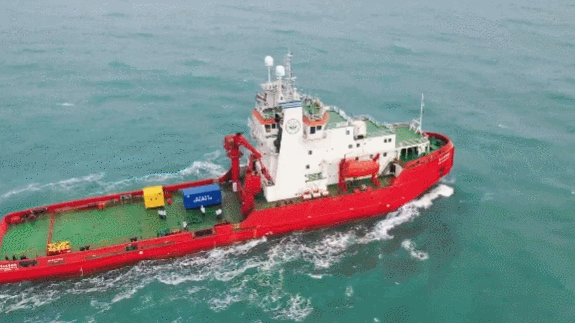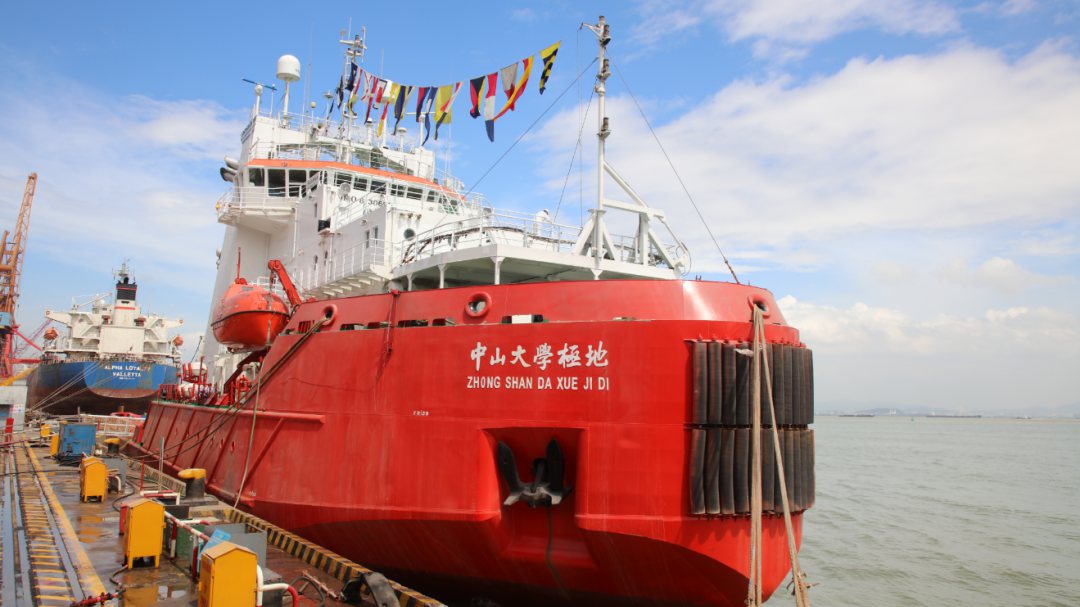
China's first university-owned icebreaker built by Sun Yat-Sen University. /Sun Yat-Sen University
China's first university-owned icebreaker built by Sun Yat-Sen University. /Sun Yat-Sen University
China's first university-owned icebreaker, built by Sun Yat-Sen University, arrived at its home port in Guangzhou, south China's Guangdong Province on Friday, after completing a sea trial mission in the Bohai Sea.
The voyage, which was the icebreaker's first mission in the sea ice-covered region after an upgrade, has verified the vessel's capabilities of low-temperature navigation, ice breaking, shipborne scientific research equipment, scientific research support in ice areas.
Dubbed "Zhongshan Daxue Jidi" (polar icebreaker of Sun Yat-Sen University), the vessel set off from Guangzhou on January 17 and crossed four major sea areas – the South China Sea, the East China Sea, the Yellow Sea and the Bohai Sea – with a one-way trip of 1,500 nautical miles.
It arrived in Liaodong Bay on January 25 after encountering fierce winter winds and waves up to 4.5 meters high.

The icebreaker docks at a port in Guangzhou, Guangdong Province, September 30, 2022. /Sun Yat-Sen University
The icebreaker docks at a port in Guangzhou, Guangdong Province, September 30, 2022. /Sun Yat-Sen University
This voyage coincided with the strongest Arctic cold wave of the winter, resulting in a record-high level of ice areas in the Bohai Sea in recent years with air temperatures nearing minus 20 degrees Celsius.
Extreme cold and severe ice conditions provided a polar-like test environment for the vessel.
"The Bohai Sea is China's only inland sea, and is the lowest ice-covered sea in the Northern Hemisphere," said Cheng Xiao, chief scientist on the voyage.
"We chose the Bohai Sea for the trial voyage to test the ice breaking ability of the vessel and its operation under low temperature environment."
The vessel is China's third polar icebreaker after Xuelong-2 and Xuelong, and will officially join the ranks of Chinese icebreakers to boost the country's polar research and expedition capacity.